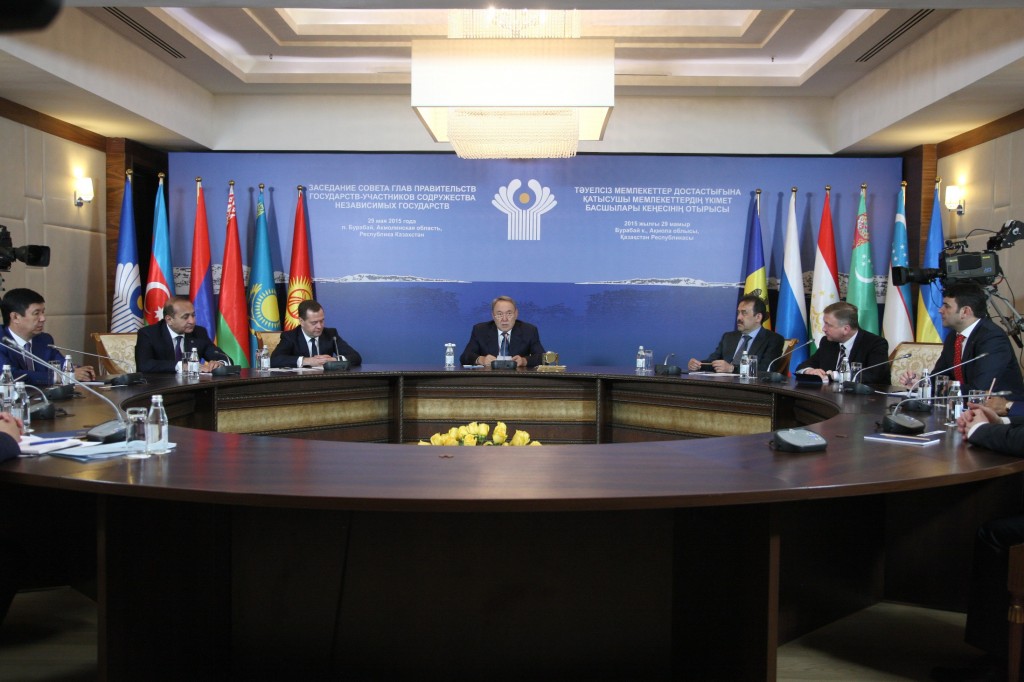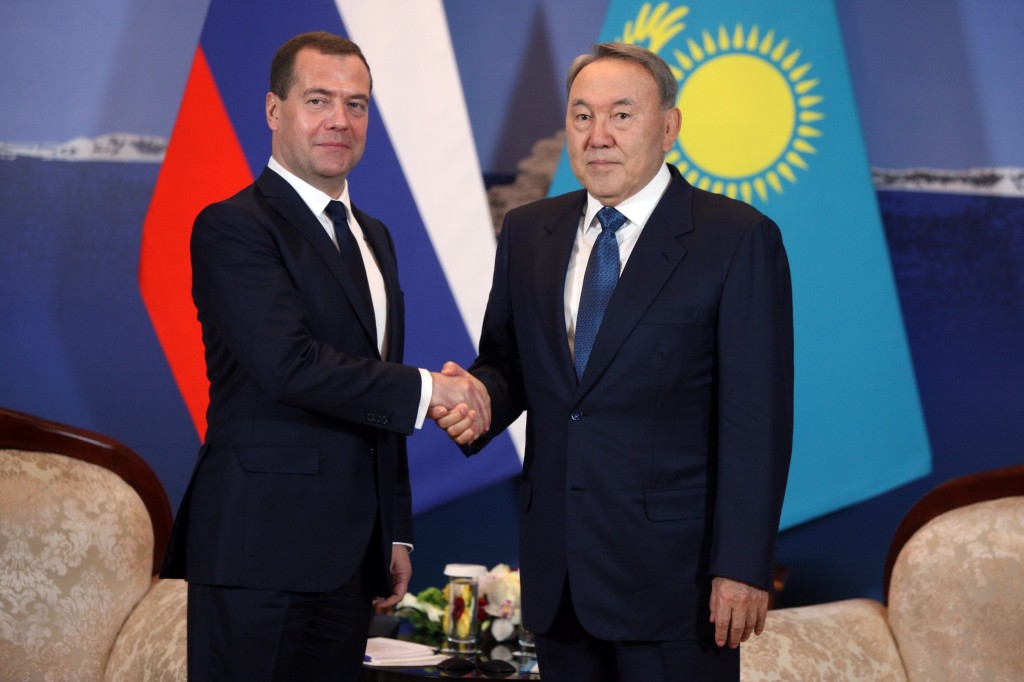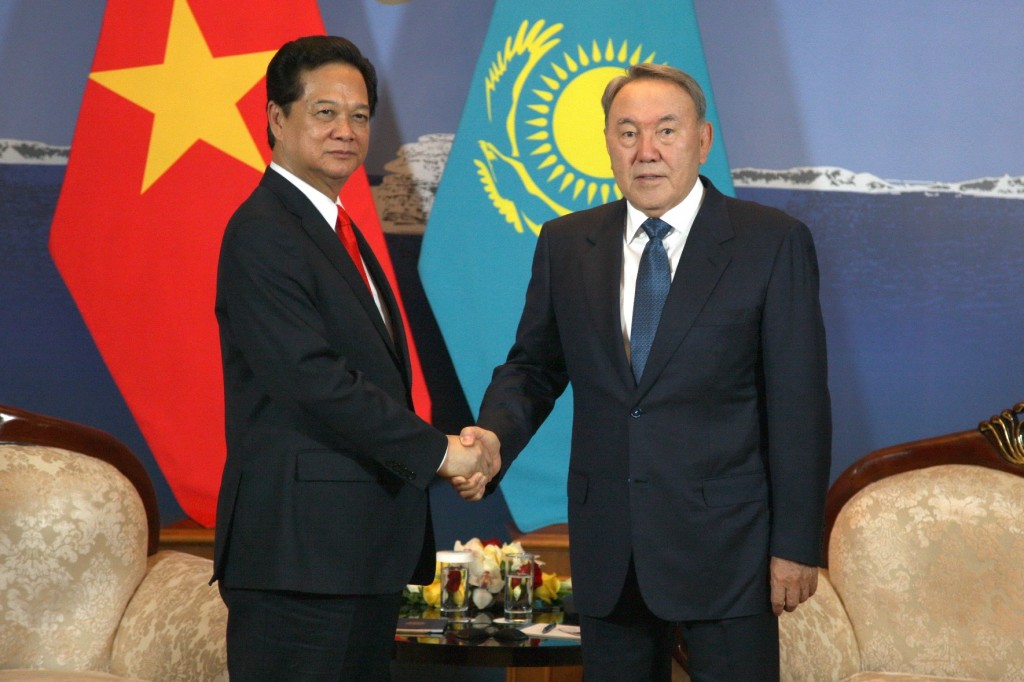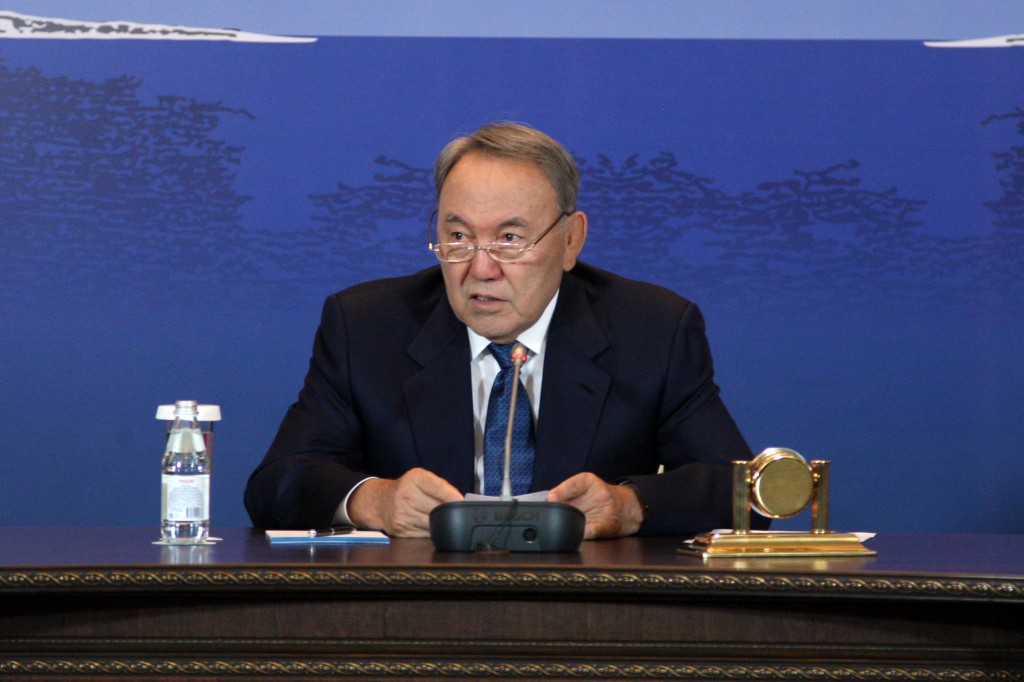ASTANA – The Burabai resort area 200 kilometres north of Astana hosted the meeting of the Commonwealth of Independent States (CIS) Council of Heads of Government as well as the Eurasian Intergovernmental Council on May 29, resulting in the signing of a number of documents. These included a joint action plan to address pressing economic and financial issues – essentially a road map of integrated work to mitigate the effects of the global financial crisis – as well as a transport safety agreement and a cross-border cooperation plan, among others.
The event was attended by delegations from Azerbaijan, Armenia, Belarus, Kazakhstan, the Kyrgyz Republic, Moldova, Russia, Tajikistan, Turkmenistan and Uzbekistan, whose discussions focused on expanding cooperation within the CIS on economic, cultural, humanitarian and military issues, as well as innovation and technology.
“During today’s meeting, participants held a very detailed discussion. The agenda included 20 documents, all of which were discussed and relevant decisions were approved,” Prime Minister of Kazakhstan Karim Massimov said at a press conference after the talks.
“In general, I want to express my satisfaction with the outcome of today’s event, which I am sure will be another step toward the integration of our countries for the benefit of our peoples’ welfare,” he added.
At the same press conference, Chairman of the CIS Executive Committee Sergey Lebedev said “[C]lear cooperation has led to the fact that all issues have been carefully prepared. They did not require long negotiations and discussions.”
“At a time of global crisis and falling prices for certain export products, we need to increase our collaboration and cooperation. I believe there is no alternative to integration; therefore, we are initiating applicable processes. Despite difficulties, the Eurasian Economic Union (EAEU) is working and I believe it has a great future. We assumed that there would be such risks, but the essence of the contract, its purpose and tasks are correct,” President of Kazakhstan Nursultan Nazarbayev said at the opening of the event addressing all the gathered delegations.
He also stressed that in the current circumstances, Kazakhstan is taking all necessary steps to support sustainable development, particularly in infrastructure modernisation.
The new transport safety strategy is intended to strengthen regional security and economic cooperation within the CIS. In addition to that agreement, the economic joint action plan and the cross-border cooperation plan, several other agreements were inked.
Two intergovernmental agreements regulating metrological certification and verification and the calibration of measuring instruments, as well as the training of teachers in CIS general education organisations, were signed, and the main cultural cooperation events in the CIS for 2016–2020 and the main directions of cooperation in forestry and the forest industry to 2025 were approved.
The meeting also adopted a new version of the “Reclamation of areas affected by uranium production” interstate programme.
The next meeting of the council will take place in October in Dushanbe.
In addition to the larger meetings, Nazarbayev held a bilateral meeting with Prime Minister of Russia Dmitry Medvedev to discuss Kazakh-Russian relations, international issues and the work of the EAEU.
“The reduction of trade turnover is easily explained,” Nazarbayev said, commenting on EAEU issues. “However, the work on developing free trade, ensuring the free movement of capital stock and labour resources, mutual investments and the establishment of joint enterprises continues. I am confident it will bear results soon,” he noted.
Nazarbayev added that about 770 enterprises, creating 1.5 percent of the country’s economic growth during the relevant period, had been established during the first phase of Kazakhstan’s State Programme for Accelerated Industrial and Innovative Development (SPAIID). The president also emphasised that the programme on infrastructural development is meant to ensure additional growth by one percent.
“Thus, we plan to avoid recession and overcome the present difficulties in the economy. These ups and downs happen from time to time in the economy. It is important to learn how to overcome them and continue to work for further development,” the President stressed.
He also suggested that the Western Europe – Western China highway be extended through St. Petersburg to Western Europe, emphasising the paramount importance of the corridor for the region, with Kyrgyzstan, Uzbekistan, Turkmenistan and Tajikistan about to join.
Nazarbayev also held talks with Prime Minister of Vietnam Nguyen Tan Dung. The parties discussed strengthening trade, economic, investment and energy cooperation between their countries. On the same day, Vietnam became the first country to sign a free trade agreement with the EAEU.


